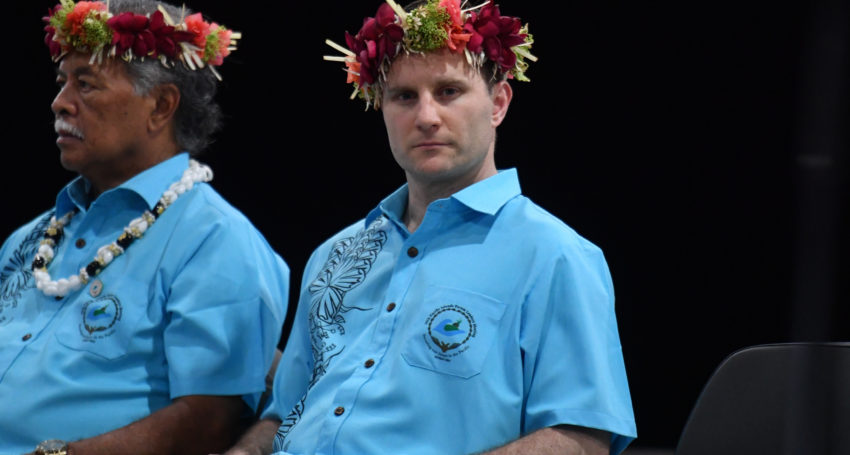Cambridge Disinformation Summit musters interdisciplinary ethos and sets up future agenda – News outlets should get “nutrition labels”

By Mike Scialom
2 August 2023
(Cambridge Independent) – The inaugural Cambridge Disinformation Summit, which took place on Thursday and Friday last week, proved hugely rewarding, say speakers and delegates who attended.
This first event, organised by Alan Jagolinzer, professor of financial accounting at Cambridge Judge Business School, offered a global interdisciplinary perspective on the disinformation landscape.
Panellist Veena McCoole, VP communications and marketing at NewsGuard, said: “The summit was a first-of-its-kind gathering of interdisciplinary professionals across law, accounting, media, policy, technology, academia, and industry, convening to learn from each other and exchange ideas on how to combat disinformation.
“Drawing parallels between seemingly unrelated industries, discussing new ways of thinking about persistent problems, and meeting new people dedicated to fighting disinformation in various capacities was really energising. I particularly enjoyed hearing from policy leaders in Sweden and Finland about how media literacy education is a formal part of early years learning, which leads to societal resilience against disinformation campaigns and external threats.
“[Facebook whistleblower] Frances Haugen’s keynote was also extremely thought-provoking and well-delivered.”
A major new source of disinformation that we have observed, linked to AI, is the rise of ‘unreliable AI-generated news sites’ (UAINs). To date, we have identified 277 UAINs. These websites typically have generic names, such as iBusiness Day, Ireland Top News, and Daily Time Update, which to a consumer appear to be established news sites. This obscures that the sites operate with little to no human oversight and publish articles written largely or entirely by bots – rather than presenting traditionally created and edited journalism, with human oversight.
Veena McCoole, VP of communications and marketing, NewsGuard
Emma Briant, honorary appointment to the Centre for Financial Reporting and Accountability at Cambridge Judge Business School, said: “For me, the summit’s contribution was in bringing together people from disciplines that have rarely, if ever, connected in addressing this subject, yet where cross-disciplinary collaboration is essential for building system-level solutions to hold the powerful to account.
“I’m hoping to use the connections I made to collaborate with those from an accounting or financial reporting background to develop new ways to hold accountable those who profit from disinformation.”
The Cambridge Disinformation Summit ended with a call for an interdisciplinary lobby to gain timely access to social and sharing media platform data to better understand how advertising targeting and sharing recommendations affect the spread of deliberately harmful information.
“I propose that this community pool resources to persuasively lobby for transparency to platform data and processes so we can understand what is actually happening in these systems,” Prof Jagolinzer said in remarks closing the summit.
Summarising the event later, Prof Jagolinzer, asked if the conference was a success, replied: “I would say unequivocally yes, with regard to raising awareness that we are building a global interdisciplinary community to collaborate.
“I temper this, however, by acknowledging that a posh assembly in the hall offers little impact without subsequent research, policy, and intervention engagement. Following the call to action, I have pivoted to follow-up projects, including curriculum development.”
Included among these next steps is an event to share interdisciplinary research and policy proposals at the University of Zurich, on a date to be announced. [more]
Cambridge Disinformation Summit musters interdisciplinary ethos – and sets up future agenda

News outlets should get “nutrition labels”, says Cambridge Disinformation Summit speaker
By Mike Scialom
18 July 2023
(Cambridge Independent) – The Cambridge Disinformation Summit, which takes place on July 27 and 28, will consider the societal damage caused by online disinformation.
The inaugural event takes up the challenge to identify the causes of disinformation and suggest ways to confront and regulate the way disinformation is created. It will also consider its appeal – the psychological reasoning that takes place among those who ingest disinformation, and why some people are so affected by it.
Veena McCoole is VP of communications and marketing at NewsGuard, which verifies the trustworthiness of news organisations across the globe.
She is on the panel for a session at 9.30am on the Friday (July 28) titled ‘Profiteering: the business of disinformation’. The King’s College Hall session will discuss the financial and power incentives from disinformation and which actors engage in disinformation for profit. She kindly agreed to respond to questions put by the Cambridge Independent.
How is disinformation created?
“A major new source of disinformation that we have observed, linked to AI, is the rise of ‘unreliable AI-generated news sites’ (UAINs).
“To date, we have identified 277 UAINs. These websites typically have generic names, such as iBusiness Day, Ireland Top News, and Daily Time Update, which to a consumer appear to be established news sites. This obscures that the sites operate with little to no human oversight and publish articles written largely or entirely by bots – rather than presenting traditionally created and edited journalism, with human oversight.
“The sites have churned out dozens and in some cases hundreds of generic articles, about a range of subjects including politics, technology, entertainment, and travel. The articles have sometimes included false claims, such as celebrity death hoaxes, fabricated events, and articles presenting old events as if they just occurred.
“Unless brands take steps to exclude untrustworthy sites, their ads will continue to appear on these types of sites, creating an economic incentive for their creation at scale.”
Is there currently any effective regulation of disinformation?
“One example of a self-regulatory tool that tech platforms have signed up to is the EU Commission’s Code of Practice on Disinformation. NewsGuard became a signatory of the code at the EU Commission’s request.”

How does NewsGuard fit into this picture?
“NewsGuard provides transparent tools to counter misinformation for readers, brands, and democracies. Our global team of misinformation experts and trained journalists produce ‘reliability ratings’ for the news websites that account for at least 95 per cent of online engagement with the news in each of our nine markets (US, UK, parts of Europe, Canada, Australia, and NZ).
“Our ratings score news and information websites on nine weighted apolitical criteria of journalistic practice. Each rating is supplemented by a detailed, transparently-sourced nutrition label that outlines the evidence gathered for each website rating, that includes any engagement and calls for comment our analysts have made to the site’s editorial leadership. These nutrition labels enable readers and partners to understand the rationale behind every rating, consult all the evidence gathered by our analysts and make their own informed decisions about whether to trust a given source.
“We believe that by providing consumers with source context and credibility information while they are browsing social media platforms or search engine results, they can make better informed decisions about which sources adhere to their own standards of transparency and credibility. By empowering end users rather than blocking access to information, NewsGuard aims to improve media literacy and information resilience without censorship.”
The full schedule for the Cambridge Disinformation Summit is available here. [more]
News outlets should get ‘nutrition labels’, says Cambridge Disinformation Summit speaker


